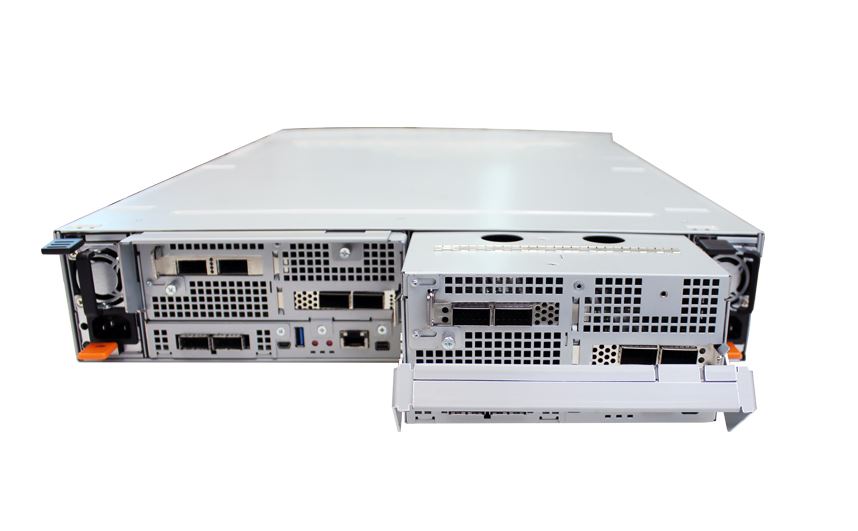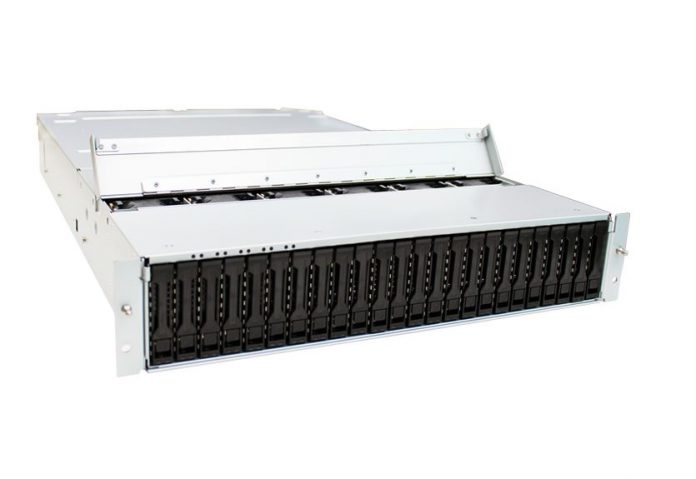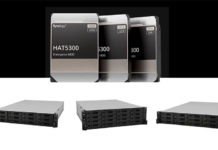Viking Enterprise has a new storage platform. The Viking NSS2249 is a 2U dual node 24-bay NVMe system with a twist. Powered by the AMD EPYC 7002 series, the company is delivering twice the performance compared to competitive solutions.
Viking Enterprise NSS2249 24-bay NVMe System
The NSS2249 is a dual-ported NVMe system which means each drive runs two PCIe Gen4 lanes to each node. Using the new PCIe Gen4 NVMe SSDs, that doubles the bandwidth versus legacy PCIe Gen3 solutions. This is unique. Most of the storage world runs on Intel Xeon CPUs which will be PCIe Gen3-based for another year or so or until the second half of 2020. Instead of waiting, the Viking Enterprise NSS2249 is delivering the system a year ahead of much of its competition.

With the AMD EPYC 7002 series, Viking is able to deliver 96 PCIe lanes for the drives and 96 PCIe Gen4 lanes for networking such as 100GbE NVMeoF adapters.
With PCIe Gen4, the company says it can handle 80GB/s and 60GB/s (reads/ writes) and 3 million IOPS. Capacities will range from 41.6TB using 1.6TB NVMe SSDs to 734TB using 30.6TB SSDs in the 2U form factor.
Dual node designs like the Viking Enterprise NSS2249 allow for PCIe storage to be used in high-availability deployments much like SAS drives have been for years. Generally, these types of solutions are Intel Xeon based because large storage OEMs have been using Intel Xeon platforms for generations. With the new AMD EPYC 7002 series, more nimble competitors are taking advantage of the new feature set afforded by the platform to provide solutions that larger competitors have been slow to adopt.
For those wondering, Viking Enterprise Solutions may not be a household name like a Dell EMC, but it is a product division of Sanmina Corporation a large ($7B+/ year) electronics manufacturer headquartered in San Jose, California.



